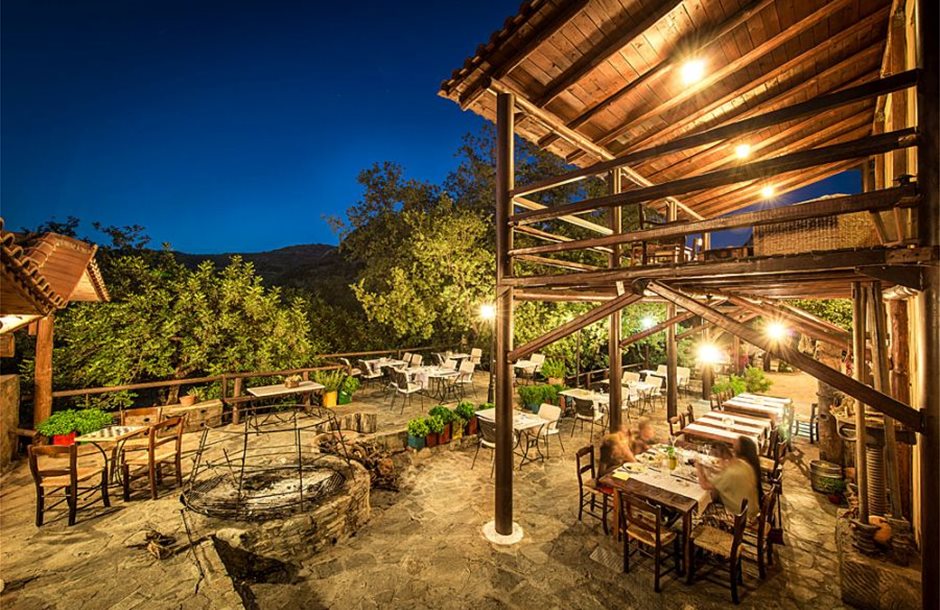Crete, the largest of the Greek islands, is a land rich in history, culture, and natural beauty. Beyond its stunning beaches and ancient ruins, the island offers a unique experience through agrotourism—inviting visitors to explore its agricultural heritage and rural landscapes. Farm stays in picturesque Crete provide an immersive experience, allowing guests to connect with the land, learn about traditional farming practices, and enjoy the island’s natural bounty. This text explores the allure, benefits, and experiences of agrotourism in Crete, highlighting how it enriches both visitors and local communities.
The Allure of Cretan Agrotourism
Agrotourism in Crete is a blend of tourism and agriculture, offering visitors a chance to stay on working farms and participate in daily agricultural activities. This form of tourism is increasingly popular among travelers seeking authentic and sustainable experiences. Crete’s diverse landscapes, from fertile valleys and terraced hillsides to lush vineyards and olive groves, provide the perfect setting for farm stays.
1. Authentic Rural Experience: Agrotourism offers an authentic glimpse into rural life in Crete. Guests can engage in traditional farming activities such as harvesting olives, picking grapes, tending to livestock, and planting vegetables. These hands-on experiences provide a deeper appreciation for the hard work and dedication involved in farming.
2. Connection to Nature: Farm stays in Crete offer a unique opportunity to reconnect with nature. The island’s rural landscapes are characterized by their tranquility and beauty, providing a peaceful retreat from the hustle and bustle of urban life. Guests can enjoy the fresh air, scenic views, and the rhythms of nature, making for a relaxing and rejuvenating experience.
3. Cultural Immersion: Staying on a farm allows visitors to immerse themselves in Cretan culture and traditions. Many farms are family-run, offering a warm and welcoming atmosphere. Guests can learn about local customs, participate in traditional cooking classes, and enjoy homemade meals prepared with fresh, organic ingredients from the farm.
Benefits of Agrotourism for Visitors and Locals
Agrotourism benefits both visitors and the local communities, fostering a mutually enriching relationship.
1. Educational Value: For visitors, agrotourism provides educational insights into sustainable farming practices and the importance of agriculture in local economies. Guests learn about organic farming, crop rotation, and natural pest control, gaining knowledge that can inspire more sustainable living practices.
2. Supporting Local Economies: Agrotourism supports local economies by providing an additional source of income for farmers. This income helps sustain traditional farming practices and rural communities, contributing to the preservation of Cretan agricultural heritage. By purchasing local products and services, visitors help boost the rural economy.
3. Environmental Sustainability: Agrotourism promotes environmentally sustainable practices. Many farms involved in agrotourism emphasize organic farming, conservation, and the use of renewable resources. This commitment to sustainability benefits the environment and ensures the long-term viability of the land.
4. Cultural Preservation: Agrotourism helps preserve and promote Cretan culture and traditions. By participating in cultural activities and learning about local customs, visitors contribute to the preservation of intangible cultural heritage. This cultural exchange enriches both guests and hosts, fostering mutual understanding and respect.
Experiences on Cretan Farm Stays
Farm stays in Crete offer a variety of activities and experiences that cater to different interests and preferences.
1. Olive Harvesting and Olive Oil Production: One of the most popular agrotourism activities in Crete is olive harvesting. Guests can join the harvest, learning how olives are hand-picked and processed. Many farms also offer tours of their olive oil mills, where visitors can see the production process and taste fresh, extra-virgin olive oil.
2. Wine Tasting and Vineyard Tours: Crete is known for its excellent wines, and many agrotourism farms include vineyards. Guests can participate in grape picking and enjoy guided tours of the vineyards and wineries. Wine tastings provide an opportunity to sample local varieties and learn about the island’s winemaking traditions.
3. Farm-to-Table Dining: Cretan cuisine is renowned for its use of fresh, local ingredients. Farm stays often include farm-to-table dining experiences, where guests can enjoy meals made from produce grown on the farm. Cooking classes are also popular, allowing visitors to learn how to prepare traditional Cretan dishes.
4. Hiking and Nature Walks: The rural landscapes of Crete offer numerous opportunities for hiking and nature walks. Many farms are located near scenic trails, allowing guests to explore the natural beauty of the island. Guided nature walks provide insights into the local flora and fauna, enhancing the outdoor experience.
5. Hands-On Workshops: In addition to farming activities, many agrotourism farms offer workshops on traditional crafts such as cheese making, pottery, and basket weaving. These hands-on workshops provide a deeper connection to Cretan culture and a chance to learn new skills.
Conclusion
Agrotourism in Crete offers a unique and enriching experience, combining the island’s agricultural heritage with its natural beauty and cultural traditions. Farm stays provide an authentic and sustainable way to explore Crete, allowing visitors to connect with the land, learn about traditional farming practices, and enjoy the island’s natural bounty. The benefits of agrotourism extend beyond the visitors, supporting local economies, promoting environmental sustainability, and preserving cultural heritage. Whether through harvesting olives, tasting wine, or simply enjoying the tranquility of the countryside, agrotourism in Crete offers an unforgettable journey into the heart of the island’s rural life.


